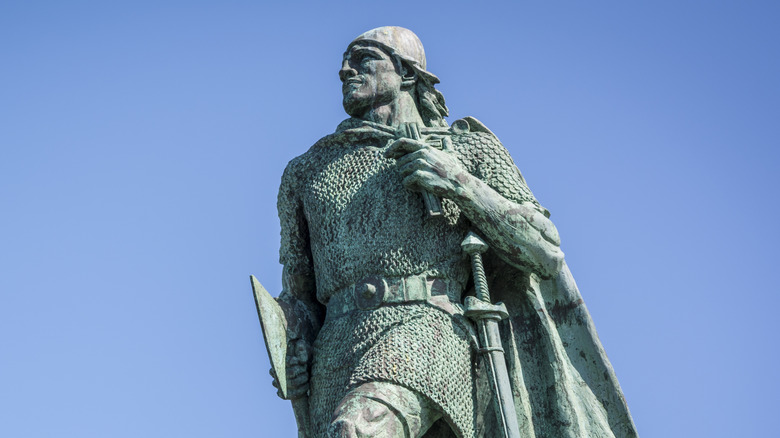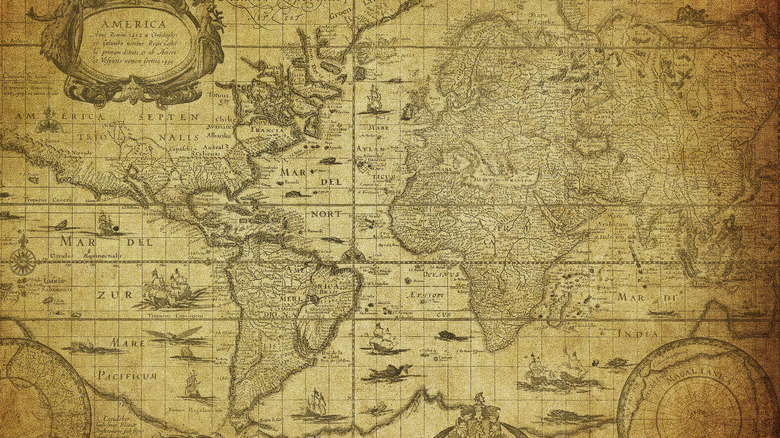The Dark History Of Leif Erikson Day
There is an often-overlooked holiday in October to celebrate European exploration and discovery of the North American continent. No, it is not Columbus Day, but rather Leif Erikson Day, which is observed on October 9. This holiday originated as a way to celebrate the man who many believe should get the real credit for "discovering" the continent — Viking explorer Leif Erikson, not Christopher Columbus (via Time). "Discovery," though, seems to be too nice of a word for the real reasons this holiday came to be — namely, the two big Rs: racism and religion.
For Americans of northern European descent, they struck a true claim that Leif Erikson arrived on the North American continent centuries before Christopher Columbus. This was also, however, a loose avenue to promote Erikson over Columbus due to Erikson's more perceived and pronounced "whiteness." Such a sentiment was even promoted in academia when in 1874, Rasmus B. Anderson, of the University of Wisconsin, published "America Not Discovered by Columbus." In the book, Anderson elevated Erikson as the first white man to set his sights on what would come to be America and even by bringing some of the democratic institutions — like voting and representative government — that Americans hold dear today.
Northern European immigrants arrived in the United States en masse in the early 19th century, meaning they had a firm foothold by the time southern European immigrants — to include darker-skinned Italians — started arriving decades later. These immigrants brought with them the story of Christopher Columbus' great discovery of the "New World." This frightened those of northern European descent, who wanted to promote Leif Erikson's story and, thus, his "whiteness," over that of Columbus.
Leif Erikson Day: A day to promote Protestantism over Catholicism
In addition to being way too concerned about true "whiteness," Americans had fears over the religion that the southern Europeans were bringing with them: Roman Catholicism (via National Geographic).
In 1892, America celebrated the 400th anniversary of Columbus's "discovery," at the behest of southern European immigrants, namely Italians. However, since he was Catholic, this caused consternation among many Americans. At the time, Americans who were not Catholic either feared the Catholic Church or just plain hated the institution. By this point in time, many northern European immigrants had accepted "American" Protestantism and were members of one of its denominations.
They saw Catholicism, with its Roman Pope, as holding out to a foreign power over swearing true allegiance to their new country.
In our modern era, there is much debate about the status of Christopher Columbus and his place in "discovering" North America. While Leif Erikson may have done so before him, unfortunately, an effort to honor him was rooted more in bigotry than in the true memory of his accomplishment.

